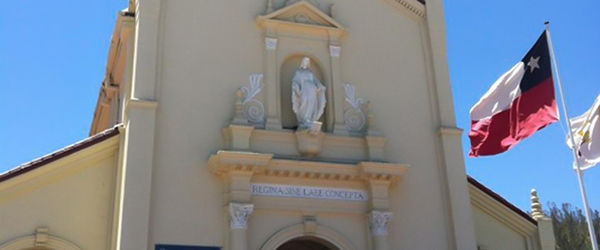There is no more important work in the Church today than calling and forming men for the priesthood. And more and more I’m convinced that in our vocation and formation work we need to become better students of our dominant American culture. Men today are trying to hear God’s call and follow it within this culture. And we’re forming them in order to send them out as apostles to this culture. We all know the many negative tendencies in American culture today. Secularism and moral relativism. A highly sexualized and materialistic outlook. Radical individualism. Family breakdown. Crises in marriage and fatherhood and personal commitment. Religious indifferentism and the “eclipse of God.” More and more people are living as if God does not exist. We need to understand the impact this culture is having on our people’s faith and their ability to know and believe in Jesus. We need to understand how this culture shapes our efforts to call and form candidates for the priesthood.The first missionaries to America were serious students of the indigenous cultures they found here. I’m thinking of pioneering priests like Blessed Junípero Serra and Father Eusebio Kino on the Pacific Coast and in the American Southwest. I’m also thinking about Bishop Frederic Baraga who evangelized in the Midwest in the mid-19th century. Recently our Holy Father Pope Benedict XVI declared him “venerable,” on the road to sainthood. Ven. Baraga was an amazing missionary priest. He wrote catechisms and prayer books in the Ottawa and Chippewa languages. These early missionaries studied these cultures in order to transform them. In order to lead people to the encounter with Jesus Christ — through and within these cultures. The world will be converted — not by words and programs — but by witnesses. That’s why the most important part of a priest’s formation will always be his personal relationship with God in Jesus Christ.In our formation of priests, we have to be thinking the same way. The future of priestly formation in America will be and must be multi-cultural. Our seminarians today come from almost every geographical continent, and from many ethnic, cultural and socio-economic backgrounds. That means we need to be sensitive to cultural differences in our education and formation programs. Many of our traditional assumptions about spirituality and prayer were formed over the centuries in a European context. But we are more aware nowadays that cultural backgrounds have a big influence on the way people pray and see the world. So we want to make sure that we don’t impose in our seminaries a “one size fits all” model of spiritual direction, formation and piety. But if our formation must be multicultural, it must at the same time also be counter-cultural and inter-cultural. We need to prepare priests who can counteract our American culture — by their preaching, by their pastoral care, by their style of life. We need to form priests who can purify and sanctify our culture with the values and vision of the Gospel.The world will be converted — not by words and programs — but by witnesses. That’s why the most important part of a priest’s formation will always be his personal relationship with God in Jesus Christ. We need to do everything we can to promote our seminarians’ growth in intimacy with God. Through lectio divina, the prayerful reading of the sacred Scriptures. Through adoration of the Blessed Eucharist. And above all through their constant conversation with God in prayer. Blessed Pope John XXIII once told a gathering of seminarians and their teachers:“In view of the mission with which you will be entrusted for the glory of God and the salvation of souls, this is the purpose of your education: forming the mind, sanctifying the will. The world awaits saints: this above all. Before cultured, eloquent, up-to-date priests, there is a need of holy priests who sanctify.”That’s the whole point. That’s the purpose of everything we do in our vocation and formation efforts. This above all. To make saints. All of us in the Church are here to accompany men on their journey to the priesthood. To work with God’s grace to form their minds and sanctify their wills. Through our prayers and through our ministries, we are here to make true men of God — in whom the men and women of our time can see Jesus Christ. Men who preach the Gospel with their lives. Men who live the mystery they celebrate at the altar. Who make themselves a total gift. For the love of God and the love of souls. Men who present their bodies as a holy and living sacrifice to God.Let’s pray for one another this week. And let’s pray for the grace to be better promoters of vocations in our Church. And let’s entrust ourselves to the maternal care and guidance of the Blessed Virgin Mary, the Mother of Priests and the Mother of the New Evangelization.Follow Archbishop Gomez at: www.facebook.com/ArchbishopGomez.{gallery width=100 height=100}gallery/2012/0720/gomez/{/gallery}

